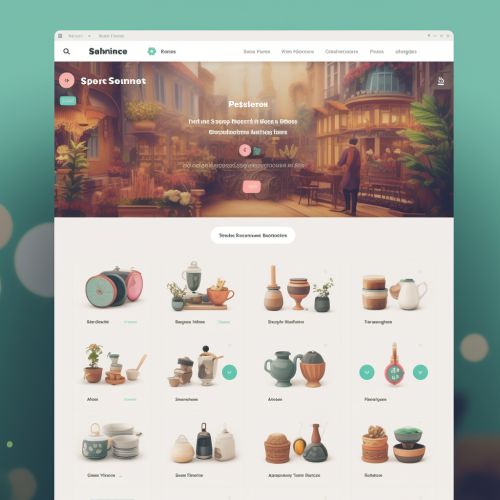Online Marketplaces
Overview
An online marketplace is a type of e-commerce site where product or service information is provided by multiple third parties, whereas transactions are processed by the marketplace operator. Online marketplaces are the primary type of multichannel e-commerce and can be described as a "simple and convenient portal" to streamline the production process.
In an online marketplace, consumer transactions are processed by the marketplace operator and then delivered and fulfilled by the participating retailers or wholesalers (often called drop shipping). Other capabilities might include auctioning (forward or reverse), catalogs, ordering, wanted advertisement, trading exchange functionality and capabilities like RFQ, RFI or RFP. These type of sites allow users to register and sell single items to a large number of items for a "post-selling" fee.
History
The concept of online marketplaces dates back to the early days of the internet and the rise of e-commerce. The first online marketplaces were actually forms of auction sites, such as eBay, which allowed people to sell personal items and products to each other. Over time, these marketplaces evolved to host more professional sellers and business transactions.
In the late 1990s and early 2000s, several large corporations, such as IBM and Oracle, began to develop and promote enterprise online marketplaces. These marketplaces were designed to streamline procurement and supply chain processes. However, many of these early corporate marketplaces failed due to a lack of buy-in from suppliers and a lack of standardized technology.
In the mid-2000s, the concept of the online marketplace began to evolve as more businesses started to move online. Companies like Amazon and Alibaba began to dominate the marketplace landscape, offering a platform for businesses of all sizes to sell their products online. These platforms provided the infrastructure and scale necessary for businesses to reach a global audience.
Types of Online Marketplaces
There are several types of online marketplaces, each with its own unique characteristics and business models. These include:
B2C Marketplaces
Business-to-Consumer (B2C) marketplaces are platforms where businesses sell to consumers. Examples of B2C marketplaces include Amazon, eBay, and Walmart.com. These platforms allow businesses to reach a large audience and offer a wide range of products.
B2B Marketplaces
Business-to-Business (B2B) marketplaces are platforms where businesses sell to other businesses. These marketplaces often deal in large quantities of products or services. Examples of B2B marketplaces include Alibaba, ThomasNet, and Global Sources.
C2C Marketplaces
Consumer-to-Consumer (C2C) marketplaces are platforms where consumers sell to other consumers. These platforms often deal in used or handmade products. Examples of C2C marketplaces include eBay, Etsy, and Craigslist.
P2P Marketplaces
Peer-to-Peer (P2P) marketplaces are platforms where individuals can exchange goods and services directly with each other. These platforms often facilitate the sharing of resources, such as car rides or vacation rentals. Examples of P2P marketplaces include Uber, Airbnb, and TaskRabbit.
Business Models
Online marketplaces operate under various business models, including:
Commission Model
In the commission model, the marketplace operator takes a percentage of each transaction conducted on the platform. This is the most common business model for online marketplaces.
Subscription Model
In the subscription model, sellers pay a regular fee to list their products or services on the marketplace. This model provides a steady revenue stream for the marketplace operator.
Listing Fee Model
In the listing fee model, sellers pay a fee for each product or service they list on the marketplace. This model can generate significant revenue if the marketplace has a high volume of listings.
Freemium Model
In the freemium model, basic listings on the marketplace are free, but sellers can pay for premium features, such as promoted listings or enhanced seller profiles.
Challenges and Opportunities
Online marketplaces face several challenges, including the need to build trust with users, manage a large number of SKUs, and handle complex logistics. However, they also offer significant opportunities, such as the ability to reach a global audience, leverage network effects, and scale rapidly.
See Also
E-commerce, Drop shipping, Supply chain management, Auction, B2C, B2B, C2C, P2P


